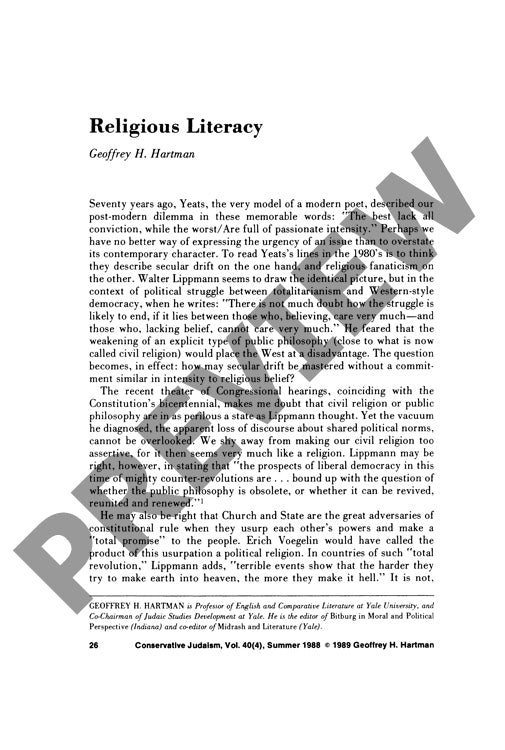Religious Literacy
Couldn't load pickup availability
Modern society stands caught between secular drift and religious fanaticism, creating an urgent need for religious literacy as a bridge between faith traditions and contemporary culture. Drawing upon Walter Lippmann's notion of public philosophy and Walter Benjamin's critique of cultural transmission, this analysis explores how religious knowledge can be meaningfully preserved and transmitted across cultural boundaries. Through comparative literary and philosophical methodology, the works of Jewish intellectuals Gershom Scholem, Franz Rosenzweig, and Abraham Heschel illuminate three critical concepts: Tradition, Translation, and Transmission. The tension between preserving religious authenticity and ensuring contemporary accessibility emerges clearly in case studies of Hebrew language revival and Biblical translation. Beyond mere academic knowledge, religious literacy demands methodical engagement with sacred texts that mirrors rabbinical commentary traditions. This approach reveals how shared practices of interpretive reading and textual commentary can connect religious and secular spheres of knowledge, offering a post-modern theological framework that transcends traditional dichotomies.

More Information
-
Physical Description
-
Publication Information
Published 1988
ISBN
-
Publication Credits
Geoffrey Hartman

